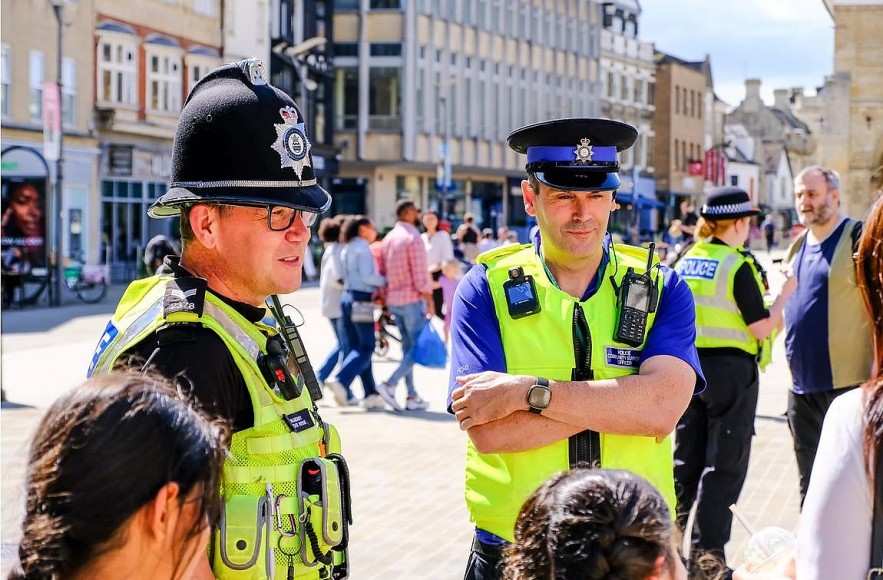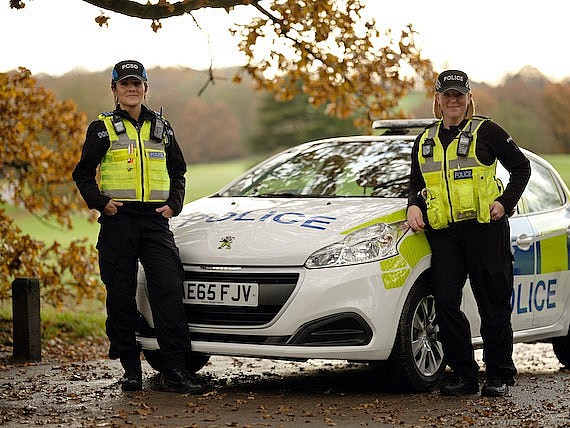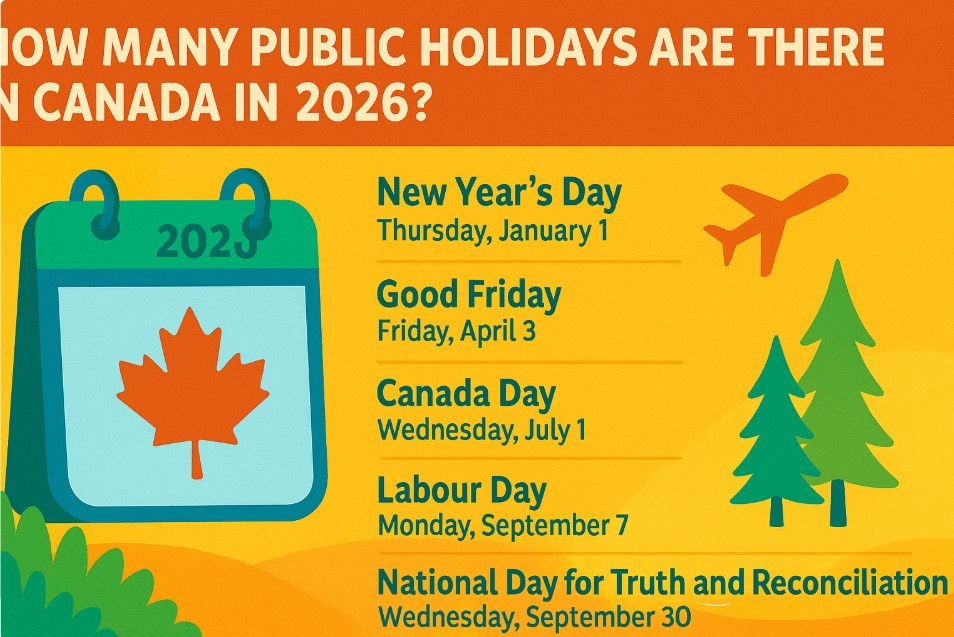Public Holidays and Leave Policies for Police Officers in the UK
| Table of Contents |
Law enforcement officers in the United Kingdom, including police officers and other personnel working in the sector, generally share the same public holidays as the rest of the country. However, their duty to protect the public often means they may have to work on these holidays. The unique nature of law enforcement work brings certain benefits and allowances, such as increased pay for working during these times.
Learn more: 2025 UK Calendar - Full List of Public Holidays, Observances and Celebrations
 |
| British police work on holidays |
Public Holidays in the UK
In the UK, public holidays, commonly referred to as "bank holidays," are national holidays observed by the general public and most public and private sectors. In England and Wales, there are usually eight bank holidays in a year:
New Year's Day (January 1st)
Good Friday (varies in date)
Easter Monday (varies in date)
Early May Bank Holiday (first Monday in May)
Spring Bank Holiday (last Monday in May)
Summer Bank Holiday (last Monday in August)
Christmas Day (December 25th)
Boxing Day (December 26th)
Additional public holidays may vary slightly in Scotland and Northern Ireland. For example, in Scotland, St. Andrew’s Day (November 30th) is a recognized public holiday.
Learn more: Full List of U.K Bank Holiday Dates
Special Holidays or Commemorations for Police Officers
While there is no official public holiday dedicated exclusively to police officers or law enforcement in the UK, there are significant days of commemoration and recognition that honor their work and sacrifices. These days, although not public holidays, play an important role in acknowledging the contributions of law enforcement personnel:
1. National Police Memorial Day
Held on the last Sunday of September each year, this day commemorates police officers who have lost their lives in the line of duty. It is a significant day for the police community, their families, and the public to reflect on the courage and dedication of officers. The memorial services, often attended by high-ranking officials and the royal family, pay tribute to fallen officers.
The National Police Memorial Day was first held in 2004 and is supported by royalty, government and UK police services. It provides a dignified and sensitive service of remembrance to honour the courage and sacrifice of the almost 5,000 police officers who have been killed on duty in the past 180 years.
2. Police Remembrance Trust
In 2018, Queen Elizabeth II granted the Police Remembrance Trust a Royal Charter that allows it to operate across the United Kingdom. The charity's mission is to ensure that no police officer who died while performing their duties is ever forgotten.
You can learn more about the Police Remembrance Trust's efforts to remember fallen police officers on this website. To better understand the service and sacrifice made by the men and women listed, we especially encourage you to look through the UK Police Roll of Honour. In order to improve the UK Police Roll of Honour, we rely on the public's support through donations, research, and submissions.
3. International Day of Police Remembrance
This is an internationally recognized day that takes place annually on May 15th. Though not a UK-specific holiday, it is widely acknowledged within the UK law enforcement community. The day is dedicated to honoring police officers worldwide who have been killed or injured while on duty.
These commemorative days are not considered public holidays and do not entitle officers to time off, but they are significant in celebrating and remembering the critical role police officers play in society.
Do Law Enforcement Officers Get Different Holidays?
In principle, law enforcement officers, including police officers, are entitled to these public holidays. However, due to the essential nature of their work, many officers are required to work on these days to ensure public safety and maintain law and order. This is in contrast to many government employees or private-sector workers who generally receive time off during these public holidays.
The key difference for law enforcement officers is how these holidays are managed. When officers work on a public holiday, they are entitled to additional benefits, such as enhanced pay or compensatory leave.
 |
| Police Officers in the UK |
Benefits and Allowances for Working on Public Holidays
Law enforcement officers working during a public holiday in the UK are compensated with higher wages or given the option to take time off at a later date. The pay structure for working on holidays typically includes:
Double Time Pay: Officers may receive double their normal hourly rate for working during a bank holiday.
Time Off in Lieu (TOIL): Instead of or in addition to extra pay, officers may accumulate time off equivalent to the number of hours worked during a public holiday. They can then take this leave at a later time.
Leave Policies for Police Officers
Apart from public holidays, police officers and other law enforcement personnel are entitled to annual leave, which can be quite generous compared to other sectors. The exact entitlement can vary slightly depending on the police force, rank, and length of service, but the general framework is as follows:
Annual Leave: Police officers generally receive between 22 to 30 days of paid annual leave, depending on their length of service. For example, officers with fewer than five years of service may receive 22 days, while those with over 10 years of service may be entitled to 30 days of leave.
Rest Days: Police officers are also entitled to rest days, typically two days off for every seven-day period worked.
Maternity and Paternity Leave: Law enforcement officers are also eligible for maternity and paternity leave, with the same entitlements as most public sector workers.
Sick Leave: Officers are entitled to paid sick leave, although the length and extent of this entitlement can depend on their length of service.
Learn more: Top 10 Most Handsome Male Policers on Social Media in the World
Differences in Leave for Law Enforcement Officers
While law enforcement officers enjoy the same public holidays as most workers in the UK, the need for their services means that they often work on these days. This is a key difference compared to other public sector employees, such as administrative staff or civil servants, who are typically guaranteed time off on public holidays.
In Conclusion
Law enforcement officers in the UK, such as police officers, are bound by the same public holiday calendar as other workers. However, the nature of their work means they are often required to be on duty during these holidays, which is offset by enhanced pay or compensatory time off. Their annual leave is generous compared to other sectors, reflecting the demanding nature of their jobs.
Overall, the UK government acknowledges the critical role of law enforcement by providing them with special allowances and benefits that take into account the unique challenges of their profession.
Frequently Asked Questions (FAQs)
-
Do law enforcement officers get time off on public holidays in the UK? Yes, but due to the essential nature of their work, many officers must work on these holidays. Those who do are entitled to enhanced pay or compensatory leave.
-
What are the benefits for working on a public holiday for law enforcement officers? Officers who work on public holidays may receive double pay or earn time off in lieu to use later.
-
How much annual leave are police officers entitled to in the UK? Police officers typically receive between 22 and 30 days of paid annual leave, depending on their length of service.
-
Can law enforcement officers carry over unused holiday days? Most police forces allow officers to carry over a limited number of unused leave days, subject to approval.
-
Do law enforcement officers receive extra allowances for working night shifts or weekends? Yes, officers are typically entitled to additional pay for working unsociable hours, including night shifts, weekends, and public holidays.
-
Is there a specific public holiday for police officers in the UK? No, there is no public holiday exclusively for police officers, but important days like the National Police Memorial Day (last Sunday of September) commemorate fallen officers.
This detailed guide gives insight into the leave policies and benefits for law enforcement personnel, offering a deeper understanding of how their unique roles affect their entitlement to time off.
 Top 10 Best Shopping Malls in the U.K 2024–2025 Top 10 Best Shopping Malls in the U.K 2024–2025 Going to a shopping center is always better than making an online purchase, whether you're looking for a specific item, getting ideas for presents, or ... |
 Top 10 UK Universities Have the Most Beautiful Female Students Top 10 UK Universities Have the Most Beautiful Female Students Why wouldn't you want to know which university in the UK has the most beautiful students? Based on information from the dating app, Kowinsiders.com has ... |
 How Many Universities Are There in the UK (2024/2025)? How Many Universities Are There in the UK (2024/2025)? There are many colleges in the UK that offer a wide range of educational options in England, Scotland, Northern Ireland, and the Ridges. The UK ... |


























